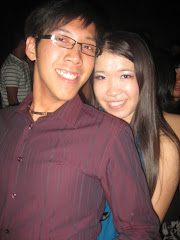
“Non-cooperation is a measure of discipline and sacrifice, and it demands respect for the opposite views”
Mahatma Gandhi, Father of the Nation for India
My interpersonal conflict experience happened during summer of 2007, where I was part of the engineering committee for Sheares Hall’s Rag and Flag.
(Rag and Flag is an annual event held in the beginning of the academic year in NUS, where faculties and halls of residence have to build a themed float from recyclable and environmental friendly materials.)
The engineering committee consisted of six members, including team leader Jason (name not real). Initially, we bonded well and respected each other’s suggestions, discussing ideas to come up with engineering concepts for different segments of the float. What started out as a fun-loving team became one that was full of conflicts between the members and their leader.
Over time, designs became complex, deadlines drew closer, and stress levels began to rise. Our discussions with Jason turned into quarrels, until it came to a point where he started ignoring our suggestions. Furthermore, he was absent most of the time, returning after working hours only to criticize our workmanship. Coupled with the lack of sleep, my team mates and I started feeling frustrated, overworked, and under-appreciated. We started isolating ourselves from him, giving him one-answered response should he converse with us. Occasionally, we would go for supper after work, where we complained about work and Jason.
Obviously, Jason noticed the change. Since he knew me longer than the rest, he consulted me about the situation, and I told him everything that was happening. He acknowledged whatever I said and vowed to change. The situation did change, just that it got worse, with conflict reaching climax.
We were working on a segment of the float when he came to voice his disapproval, giving us his “suggestion” that was too complex to construct. We decided to proceed with our initial concept without consulting him. When he saw what was happening, he yelled derogatory remarks at us. He walked away, and so did we, but in different directions.
We patched things up eventually, and worked until the competition day itself. Perhaps the whole fiasco could have been prevented if we had a clearer picture of the end goal in mind – to be champions of the competition. Although we all remained friends with Jason, we swore never to work with or under him again.
There were many factors which brought us to such a situation – stress, miscommunication, personality difference etc. What could we have done to resolve the situation? In fact, what could we not have done to avoid that situation?
Author’s note: We won first place and Jason and I are currently working on another hall project.


Interesting account Chee Kiang. I think you have already pretty much hit the nail on the head with the phrase "the whole fiasco could have been prevented if we had a clearer picture of the end goal in mind". This is something which can easily be done but more often than not we tend to 'under-prioritize' the end goal.
ReplyDeleteHowever, it cannot be argued that the process is often just as important if not more important than the end goal. As you have aptly pointed out, factors such as stress, miscommunication & personality differences can affect this process. It has to be noted, however, that stress and clashes due to personality differences are inherent during such projects but miscommunication is something which can be avoided or rectified.
In my point of view, the answer to both your questions would be the same. I think your committee members should have sat down together with 'Jason' and worked your differences out. I'm glad that you eventually won but I'm sure the process would have been more enjoyable if you guys had worked things out. Just a thought bro. :)
Thanks, Chee Kiang, for this clearly articulated blog post on conflict. (In fact, maybe a bit too clearly....) You describe the conflict situation very well. But you don't leave the reader much room to negotiate a solution.
ReplyDelete(Dhinesh addresses the scenario well though.) I just wonder what you did to patch up the situation, which you said was resolved.
Conflicts are very common in projects, especially in such big projects like Rag. I think Jason probably became more defensive when he realized that he was not liked by so many people on the team. You did not state clearly how did you guys actually patched things up. Did you guys talk things through and the situation got better or did you guys just sweep things under the carpet just so that the project can be finished on time? If I’m not wrong, the conflicts started when the stress due to deadlines came in. It would probably be good to work out a timeline just to ensure everyone that there is no need to panic as everything is under control and you guys have plenty of time to work things out. Also, during a heated discussion, you could try to remind everyone that all the “arguments” are nothing personal and that everyone has the same goal in mind, which is to make the best float. Moreover, since you have known Jason for the longest time, maybe you could try to make everyone understand that that is how Jason and he meant no harm. I know it’s easier said than done but good luck! =)
ReplyDeleteHi Chee Kiang,
ReplyDeleteI think what all the previous posts say are pretty enough. Having said that, your post already dissect the whole situation pretty nicely.
Maybe, the project leader and the team members have a talk all around instead of talking only you to understand the situation. Then, the whole team members can voice their concerns and this can lead to a bit of better understanding in the team.